Related Research Articles
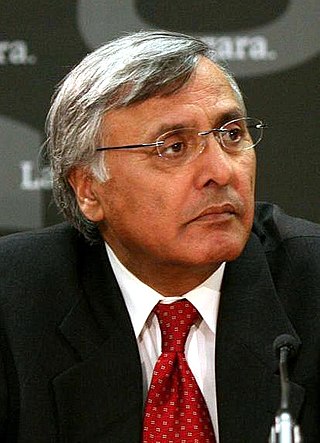
Ujjal Dev Dosanjh, is a Canadian lawyer and politician. He served as the 33rd premier of British Columbia from 2000 to 2001 and as a Liberal Party of Canada member of Parliament from 2004 to 2011. He was minister of health from 2004 until 2006, when the party lost government. He then served in the Official Opposition from January 2006 until 2011. Dosanjh was one of four visible minorities to serve in Paul Martin's Ministry.
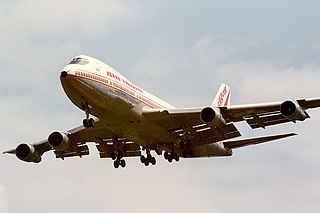
Air India Flight 182 was a passenger flight operating on the Montreal–London–Delhi–Bombay route, that on 23 June 1985, disintegrated over the Atlantic Ocean as a result of an explosion from a bomb planted by Canadian Sikh terrorists. It was operated using a Boeing 747-237B registered VT-EFO. The incident happened en route from Montreal to London at an altitude of 31,000 feet (9,400 m). The remnants of the aircraft fell into the sea approximately 190 kilometres off the coast of Ireland, killing all 329 people on board, including 268 Canadian citizens, 27 British citizens, and 24 Indian citizens. The bombing of Air India Flight 182 is the worst terrorist attack in Canadian history, the deadliest aviation incident in the history of Air India and was the world's deadliest act of aviation terrorism until the September 11 attacks in 2001. The mastermind behind the bombing was believed to be Inderjit Singh Reyat, a dual British-Canadian national, who pleaded guilty in 2003 and Talwinder Singh Parmar, a Canadian Sikh separatist leader, who was one of the key individuals associated with the militant group Babbar Khalsa.

Babbar Khalsa International, better known as Babbar Khalsa, is a Sikh militant organisation that aims to create an independent Sikh nation of Khalistan in the Indian and Pakistani states of Punjab. It has used armed attacks, assassinations and bombings in aid of that goal, and is deemed to be a terrorist entity by various governments. Besides India, it operates in North America and Europe, including Scandinavia.

Duncan is a city on southern Vancouver Island in British Columbia, Canada. It is the smallest city by area in Canada. It was incorporated in 1912.

The 1985 Narita International Airport bombing was the attempted terrorist bombing of Air India Flight 301, which took place on June 23, 1985. A bomb hidden in a suitcase transiting through New Tokyo International Airport exploded at 06:19 23 June 1985 in a baggage handling room, killing two baggage handlers and injuring another four. The bomb exploded prematurely while the plane was still grounded. The attack at Narita was part of an attempted double-bombing orchestrated by Talwinder Singh Parmar, a Canadian national, and the Sikh terrorist organization, Babbar Khalsa. The bombs were made by Inderjit Singh Reyat.
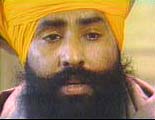
Talwinder Singh Parmar or Hardev Singh Parmar was a Sikh militant accused by Indian government of masterminding the 1985 Air India Flight 182 bombing, which killed 329 people. It was the worst single incident of aviation terrorism in history until the September 11 attacks in the United States. In addition, another bomb was meant to explode aboard Air India Flight 301 in Japan the same day, but it exploded while the plane was still grounded, killing two people. Parmar was also the founder, leader, and Jathedar of Babbar Khalsa International (BKI), better known as Babbar Khalsa, a Sikh militant group involved in the Khalistan movement.
Tara Singh Hayer was an Indian-Canadian newspaper publisher and editor who was murdered after his outspoken criticism of fundamentalist violence and terrorism. In particular, he was a key witness in the trial of the Air India Flight 182 bombing.
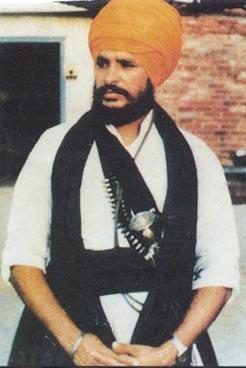
Jathedar Sukhdev Singh Babbar was the militant and co-leader of Babbar Khalsa (BK), a Sikh militant organisation involved in the pursuit of creating a Sikh nation named as "Khalistan" and generally believed responsible for the 1985 bombing of Air India Flight 182, although Sukhdev was never named as being involved. BK was founded by Talwinder Singh Parmar, himself, and Amarjit Kaur. He commanded BK continuously for 14 years until he was killed in 1992. He was a member of the AKJ.
Santokh Singh Bagga was a Canadian Security Intelligence Service (CSIS) informant who helped with the investigation of the 1985 Air India bombing.

Murder Unveiled is a 2005 Canadian television film. The movie is based on the true story of the Jaswinder Kaur Sidhu murder. The film was screened at the Asian Festival of First Films on November 26, 2005 and was first aired on CBC on February 6, 2006.
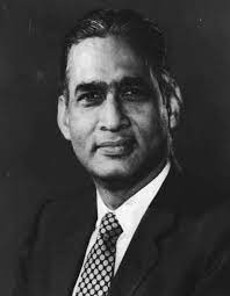
Yelavarthy Nayudamma was a chemical engineer and a scientist killed on Air India Flight 182.

Kim Rosemary Bolan is a Canadian journalist who has been a reporter at the Vancouver Sun since her journalism career began in 1984. She has reported on minority, women's, education, and social services issues; wars in El Salvador, Guatemala and Afghanistan; Sikh extremism, and the bombing and trials related to Air India Flight 182. CBC Radio has also featured her work. On May 4, 2017, while covering a murder trial of a former leader of the UN Gang, Bolan learned that she had been the subject of a murder plot, which she reported on in an article published on May 24, 2017, in the Vancouver Sun.
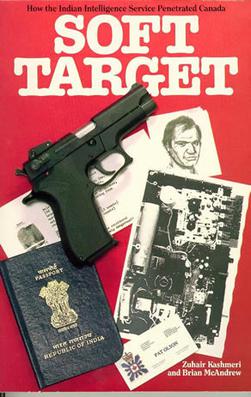
Soft Target: How the Indian Intelligence Service Penetrated Canada is an investigative journalism book written by Canadian reporters Zuhair Kashmeri and Brian McAndrew. The authors define a "soft target" as "an espionage term used for any country, institution or group of people very easy to penetrate and manipulate for subversive purposes" and argue that the Canadian Sikh community was a soft target of a covert operation by the Indian government during the 1980s. The book also makes a claim that Indian intelligence agencies not only penetrated the Sikh community in order to discredit them worldwide and halt the momentum of the demand of an independent Sikh state, but also manipulated the Royal Canadian Mounted Police (RCMP) and Canadian Security Intelligence Service (CSIS).

The International Sikh Youth Federation (ISYF) is a proscribed organisation that aims to establish an independent homeland for the Sikhs called Khalistan. It is banned as a terrorist organisation under Australian, Japanese, Indian, Canadian and American counter-terrorism legislation. The Government of India has declared it a terrorist organisation. While banned, the organization continues to receive financial support from many Sikh people based in Canada, the United States, and the United Kingdom.
Lakhbir Singh Rode was an Indian Khalistani separatist and the nephew of Jarnail Singh Bhindranwale.
An Egyptian resident of British Columbia, Essam Hafez Mohammed Marzouk arrived in Vancouver, British Columbia, Canada in 1993 as a refugee fleeing persecution in Pakistan. He was one of 14 people subjected to extraordinary rendition by the CIA prior to the 2001 declaration of a war on terror. Marzouk was the contact point for a bin Laden terrorist cell in Canada.
In May 1986, five Canadian Sikhs were charged with plotting to blow up Air India Flight 112 in New York City. Ostensibly members of Babbar Khalsa, two were convicted and given life sentences, while three others were released. However, years later, the courts overturned the sentences and freed the remaining two men noting that the government had failed to disclose "crucial evidence" about the alleged plot, and defence lawyers argued that the men had been entrapped by police agents who invited them to a meeting, then suggested the crime, and arrested them for showing signs of agreement.
The bombings of Air India Flight 182 and the Narita Airport launched several investigations, inquiries and trials. The trial of Malik and Bagri is known as the Air India Trial; events relating to the incident are listed below in chronological order.
I began by describing the horrific nature of these cruel acts of terrorism, acts which cry out for justice. Justice is not achieved, however, if persons are convicted on anything less than the requisite standard of proof beyond a reasonable doubt. Despite what appear to have been the best and most earnest of efforts by the police and the Crown, the evidence has fallen markedly short of that standard.
Air India 182 is a 2008 documentary directed by Sturla Gunnarsson, and produced by David York. It is about the Air India Flight 182 bombing in 1985. The Canadian Broadcasting Corporation commissioned the film, which originally had the preliminary title Flight 182. Gunarsson stated that he hoped the film would cause Canadians to contemplate domestic terrorism.
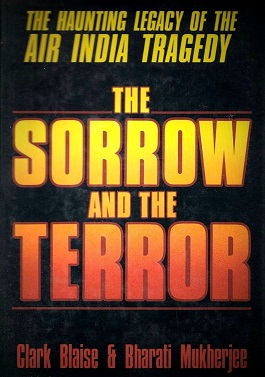
The Sorrow and the Terror: The Haunting Legacy of the Air India Tragedy is a 1987 book by Clark Blaise and Bharati Mukherjee about the Air India Flight 182 bombing in 1985. It was published by Viking Books. Both authors are naturalized Canadians; Mukherjee is an Indo-Canadian Hindu who was born an Indian citizen while Blaise was born an American citizen.
References
- ↑ Jiwa, Salim. "Margin of Terror: A Reporter's Twenty-Year Odyssey Covering the Tragedies of the Air India Bombing.", 2006
- 1 2 The Globe and Mail, Air India: Evidence from the trial [ dead link ]
- 1 2 "Scanned Document" (PDF). Archived from the original (PDF) on 2012-11-03. Retrieved 2008-08-18.
- ↑ "Air India 182 Press Kit" (Archive). Air India 182 (film) official website. p. 10/12. Retrieved on March 10, 2015.
- ↑ Smith, Charlie. "Terror of Air India Flight 182 comes to small screen" (Archive). The Georgia Straight . June 18, 2008. Retrieved on October 29, 2014.